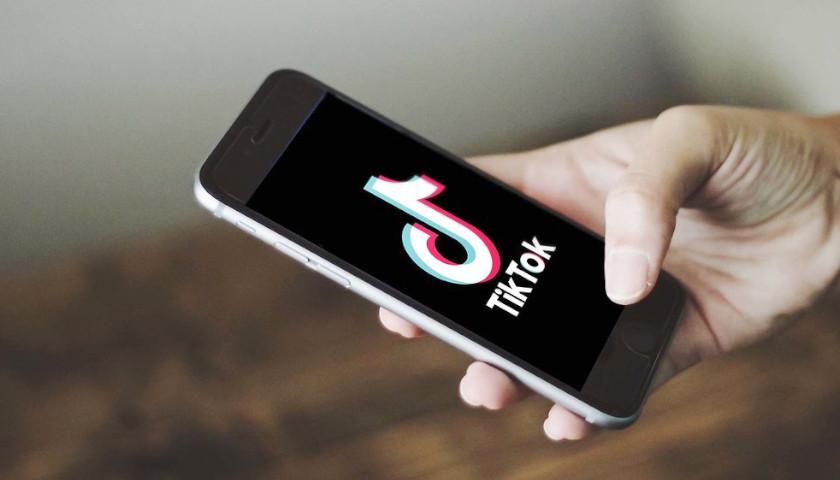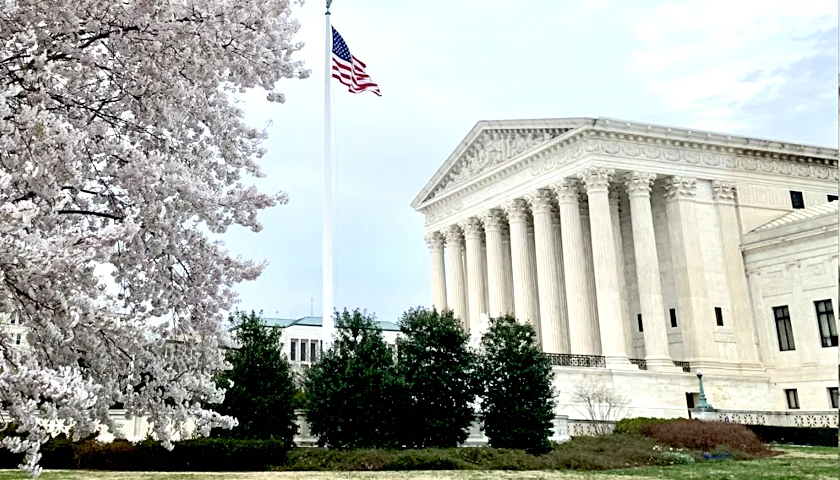Tennessee Attorney General Jonathan Skrmetti told The Tennessee Star in a Thursday phone interview that his office’s unredacted lawsuit against Meta, the parent company of Facebook and Instagram, shows the company is using strategies to increase Instagram user engagement which are “catastrophic” to teenage girls, and warned that other social media companies may soon land within his crosshairs.
Speaking to The Star, Skrmetti explained that his office’s unredacted complaint against Meta, which it released last week, outlines “a very sophisticated effort by a very sophisticated company to design a product that kids would have a hard time not using.” Meta’s focus on children, Skrmetti said, was motivated by a desire to keep them using the platforms into adulthood, when the company will have collected years worth of data that can be used by advertisers.
The unredacted complaint reveals Meta allegedly knowingly made Instagram addictive to children, even funding research into the abilities of the app to generate dopamine in teenage brains. The social media giant also allegedly suppressed data about children receiving unwanted sexual advances, as well as research suggesting at least one feature requested by the company’s CEO may have hurt the mental health of children.
Asked about the complaint’s reference to Facebook founder and Meta CEO Mark Zuckerberg directing Instagram to make filters that resembled the results of plastic surgery, Skrmetti called the effects “catastrophic” and noted the company’s “governance is pretty unusual in that it’s extremely centralized.”
“We’ve heard the engagement team was the top priority,” Skrmetti told The Star, adding that these were “the people responsible for ensuring users remained online as much as possible, and the number of users was growing as much as possible.”
Skrmetti said, “All the evidence points toward the direction of extensive C-Suite involvement in these decisions.”
The attorney general also added that when “people lower down the chain” raised concerns, they “were stiff armed by the folks higher up.”
The results, said Skrmetti, are “catastrophic for young women.”
Addressing the impact of social media on teen mental health, Skrmetti explained that “girls are hit harder than boys,” with research suggesting they are more impacted by concerns about body image, which can be exacerbated by the frequent use of image filters on Instagram.
“It’s extremely damaging, and we need to make sure that kids aren’t being put in a position where they’re constantly striving for an ideal they’ll never reach, feeling like they’re failures, inherently, because of the way God made them,” Skrmetti added. “Kids are wonderful and kids are vulnerable, and we need to protect them from that sort of self-image that can cause real, lasting, and potentially irrevocable harm.”
The complaint against Meta also revealed that between 8 percent and 27 percent of teens between 13 and 15 were exposed to unwanted advances, bullying, or content related to self-harm on the platform, and when asked whether Meta is capable of detecting this content, Skrmetti said the real issue is the scale of the problem.
“They have systems in place to catch this, I think the issue is they’re aware of the ubiquity of it, and they’ve put out information suggesting it’s less of a problem than it is,” Skrmetti told The Star, adding that Meta claims “the number of incidents is much lower and the risk to individual users is much lower, and that’s part of the problem.”
Skrmetti said, “If there’s a product out there that’s creating risks and dangers, especially for kids, they have to give a warning.”
When asked what sort of thing Skrmetti’s office would like to see Meta compelled to make at Instagram, including warnings about the allegedly addictive nature of the platform, the attorney general stressed that he does not want to “micro-manage” the industry, but suggested features that could require children to take breaks from social media.
“In an ideal world, you would be able to make Meta and all of the other platforms out there reduce the danger to kids,” said Skrmetti. “That’s not saying we should be micromanaging the platforms, the government has a very limited role, but when there’s clear damage being done we can say stop or there will be consequences and make them include safeguards to protect kids from some of these issues.”
He compared the laissez-faire approach in the United States to that of China, where TikTok originated as Douyin.
“Kids can only be on it for a set amount of time per day, the content is much more restricted than the content available to adults,” Skrmetti told The Star before acknowledging, “Obviously, this is Communist China; their government is more heavy-handed than we will ever be, and we don’t want to impose the same level of control.”
Still, Skrmetti said “that shows there are ways the technology can be used such that kids can still access it, still get the benefits of it, but some of the risks are reduced.”
Pressed for a possible concrete goal of the legal action, Skrmetti suggested a feature to prevent children from losing sleep while surfing Instagram into the “wee hours” of the morning.
“One thing that seems very obvious to me is sleep deprivation. A lot of the mental health harm comes from kids not getting enough sleep because they’re on social media late at night,” the attorney general explained. “We know that Meta has unbelievable amounts of data about its users, it’s able to identify which users are kids with a very high degree of accuracy, even if they’re lying about their age, and that is some sort of protection to ensure they’re not on into the wee hours, losing sleep, which has a bigger impact on kids than adults. It’s bad for everybody, but it can really hurt kids.”
Skrmetti, who recently secured a $700 million settlement from Google over anti-competitive trade practices related to its Google Play Store, also told The Star that his office is unlikely to stop with Meta.
“This is an industry-wide problem. Meta is the biggest, and I think that more than anything is why they’re first,” he explained, pointing to the allegations outlined in his unredacted complaint. “We’re not just going after Meta, we’re looking at the industry. I think you can expect to see, somewhat similar to opioids, a sequential approach where company after company after company is put in the hot seat.”
Despite his promise that Meta is only the first social media giant to face such action from his office, Skrmetti told The Star he harbors no ill will toward the industry.
“We’re not saying social media is inherently evil. We’re not trying to shut down the industry, we’re not trying to micromanage the industry,” the attorney general explained. “This is a situation where there are real and meaningful harms and it’s our job to ensure that companies are staying within the lines.”
Skrmetti said, “These are very well-established laws designed to protect consumers that we’re applying here, even though the context is novel and the technology is very sophisticated, this is the traditional function of attorneys general. The goal is not to make Meta poor. The goal is to make Meta safe.”
– – –
Tom Pappert is the lead reporter for The Tennessee Star, and also reports for The Georgia Star News, The Virginia Star, and the Arizona Sun Times. Follow Tom on X/Twitter. Email tips to [email protected].






Crack cocaine is and social media any difference?